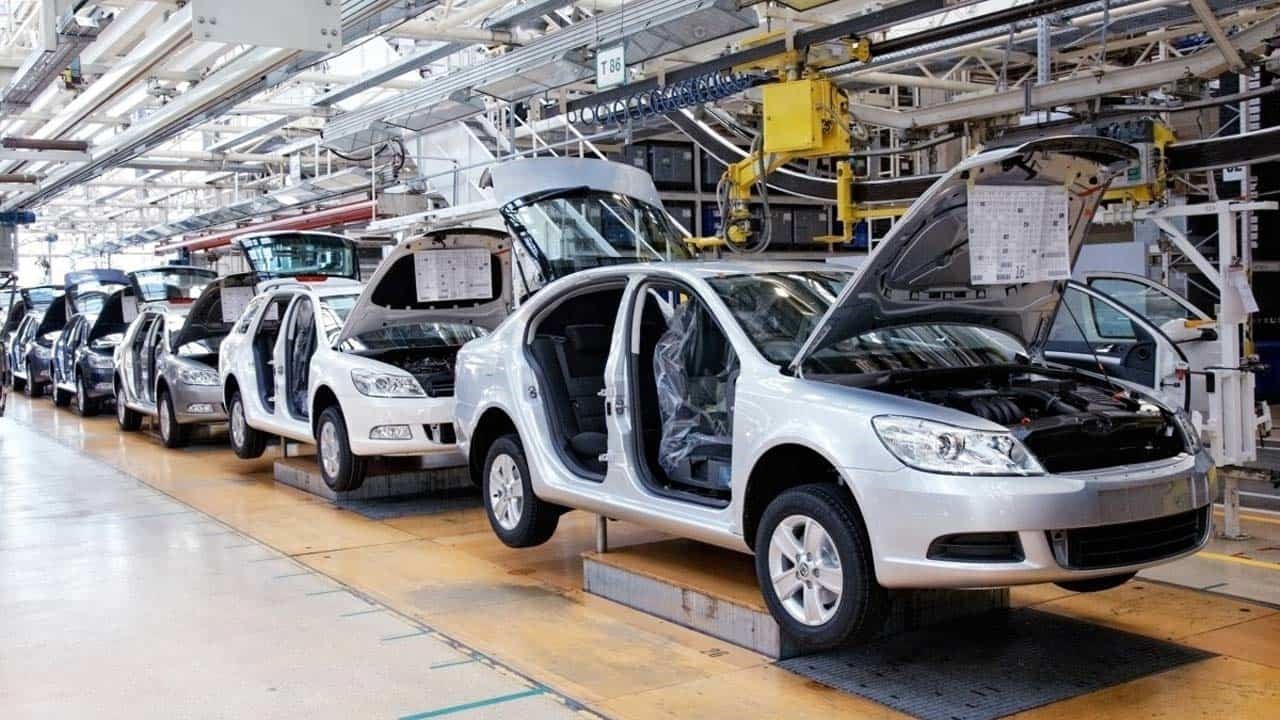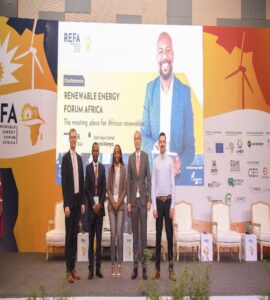
Ditching Fossil for Renewable Energy to Spur Africa’s Automobile Manufacturing, Trade
The case of imported used cars
Excluding South Africa, Africa currently accounts for only 0.5% of the global automotive market, and the equivalent of 600,000 units. Its motorization rate is significantly below the global average of 203 with just 45 vehicles per 1000 inhabitants. The demand for motor cars is growing rapidly across the continent at an average of 2.4 million cars and 3 million cars annually. This demand is largely met by imported used cars due to their low costs where they dominate in most African countries’ automotive markets superseding locally assembled vehicles.
Locally assembled vehicle manufacturing productivity has slowed down in recent years due to energy deficiency. The global energy crisis which has been compounded by the Russia-Ukraine war has skyrocketed fossil fuel prices leading to increased production costs. This disruption has led to decreased output since the industry is dependent on fossil fuels as a source of energy. In a bid to boost local assembly vehicle manufacturing, African governments have introduced deep tax concessions. For instance, in Kenya, the Finance Act 2022 exempts locally assembled cars from value-added Tax (VAT) and excise duty which have led to declined output and productivity rates within the manufacturing industry.
For local manufacturers to achieve economies of scale and manufacture vehicles on a large scale, production costs have to be lowered. Alternative sources of energy need to be utilized to reduce the reliance on fossil fuels. Africa’s potential comparative advantage in electric vehicle production should be exploited to reduce import costs and promote intra-African trade in the automotive industry. There is a critical need to upscale our manufacturing plants to ensure the production of electric vehicles that are tailored to African market needs.
Curing the energy deficit
Currently electricity accounts for around 20% of final energy use in the manufacturing industry including the automotive industries. The International Energy Agency predicts that the same is only expected to rise. The deployment of cost-effective energy sources such as renewable energy becomes a matter of urgency in the automotive industry to reduce production costs. Renewable energy sources are feasible due to their affordability and predictable prices.
Africa is richly endowed with renewable sources of energy, from hydropower, solar, wind energy, and biomass to geothermal energy. Her potential stands at 1.2 terawatts. Her long-term potential solar energy output is projected to be 4.51kWh/kWp/day, putting her in first place in the world. This potential however remains untapped as a result of structural, regulatory, and financial constraints.
The high initial installation costs and the requirement of large amounts of capital upfront pose challenges for Africa. Renewable energy requires infrastructure such as solar panels, wind farms, hydroelectric power plants, and geothermal installation to be fully functional. Utility-scale solar PV for manufacturing power plants, for instance, requires thousands or hundreds of solar panels to generate power on a large scale.
“Renewable energy as a source of energy for the manufacturing industry and in the production of electric vehicles is important if Africa is going to rise above its current manufacturing output.”
Investments in Africa remain fragmented and unequal. Some countries receive large amounts of foreign direct investment while others remain underfunded. South Africa for instance, received over 40% of the total investment flows (22.4 billion) between 2010-2020. Solar energy projects accounted for 60% of that investment ($13.5 billion). Fragmented and unequal financial markets create monopolistic players leaving production and distribution of manufactured goods to a few market players
Closing in on the financial gaps.
There have been concerted efforts to fully adopt renewable energy in manufacturing firms in Africa. The annual Renewable Energy Forum Africa (REFA) which was held in Kenya in 2023, for instance, brought together, global investors, policymakers, and project developers. The expansion of wind markets in Africa, Investment opportunities in solar, financing of small-scale C& I solutions throughout Africa, the utility 3.0 potential, the growth of the African storage market, competition between solar and storage with baseload thermal power, hybrid projects, net metering in Africa, and the long-term quality of e-mobility within the African context were canvassed.

In addition, initiatives such as the Renewable Energy Manufacturing Initiative (REMI) are accelerating the creation of green manufacturing capacity in Africa by synergizing resources from south-south cooperation. Notable projects that have been earmarked include solar PV and battery manufacturing. Supporting technologies such as Electric vehicles are also prospected.
The AfCTFA provides a ripe opportunity for the private sector to collaborate with African governments. The AfCFTA rules of origin will help in promoting quality products within the automotive industry as it denotes the value addition sufficiency allowing goods to acquire originating status in the country where such manufacturing or processing occurs. Reduced tariffs will promote the exploitation and exchange of raw materials such as lithium, cobalt, and nickel among member countries, which are critical in battery manufacturing.
Regional integration blocs are critical in harmonizing and developing a coherent policy framework regulating renewable energy. African member states should leverage regional sustainable energy centers to pool funds and learn from their research and development workshops for effectiveness and efficiency. The Centre of Excellence for Renewable Energy and Energy Efficiency which is operational in Uganda acts as a think tank for EAC member states in providing advisory opinion on financing and policy framework of renewable energy.
African countries should prioritize and increase budgetary allocation for these renewable energy projects. Renewable energy will save the continent billions of dollars which is used in the importation of fossil fuels. Governments should de-incentivize oil and gas and incentivize renewable energy through reduced tariffs, investment in renewable technology, and attractive investment packages resulting in the growth of the renewable energy market.
De-risking and risk mitigation strategies and policy frameworks need to be put in place to pool funds from investors. For instance, legal provisions on compensation and/ or transferring risk to a third party are critical in boosting the confidence of investors. Multilateral development banks are using various de-risk strategies such as First loss guarantee (FLG) to transfer the risk to a third party.
Renewable energy as a source of energy for the manufacturing industry and in the production of electric vehicles is important if Africa is going to rise above its current manufacturing output. Renewable energy is not privy to geopolitics, price spikes, and supply chain disruptions. Africa has a comparative advantage and should endeavor to explore and exploit its richly endowed resources and be a global player in manufactured goods, including electric vehicles.



